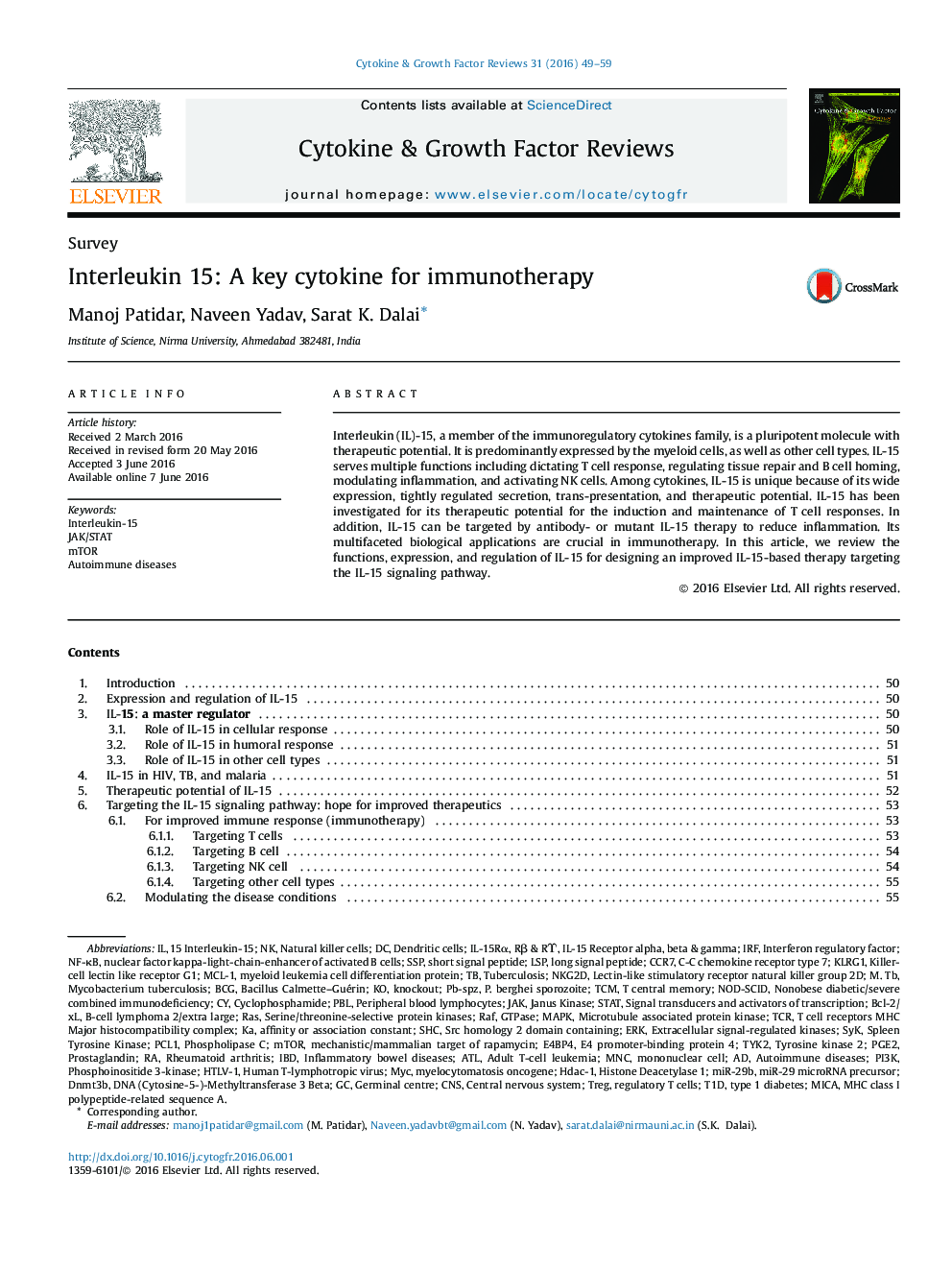| Article ID | Journal | Published Year | Pages | File Type |
|---|---|---|---|---|
| 5531242 | Cytokine & Growth Factor Reviews | 2016 | 11 Pages |
â¢IL-15 is a critical modulator for ensuring the host defence against intracellular pathogens.â¢IL-15 is not only involved in maintaining the naïve, effector and memory T cells, but also play a predominant role in reactivation of memory T cells.â¢IL-15 is widely expressed by many cell types and its expression is tightly regulated due to its pro-inflammatory nature.â¢Short half-life and poor bioavailability of IL-15 limit its therapeutic use.â¢Targeting the IL-15 signaling pathway could be beneficial and might address many clinical problems.
Interleukin (IL)-15, a member of the immunoregulatory cytokines family, is a pluripotent molecule with therapeutic potential. It is predominantly expressed by the myeloid cells, as well as other cell types. IL-15 serves multiple functions including dictating T cell response, regulating tissue repair and B cell homing, modulating inflammation, and activating NK cells. Among cytokines, IL-15 is unique because of its wide expression, tightly regulated secretion, trans-presentation, and therapeutic potential. IL-15 has been investigated for its therapeutic potential for the induction and maintenance of T cell responses. In addition, IL-15 can be targeted by antibody- or mutant IL-15 therapy to reduce inflammation. Its multifaceted biological applications are crucial in immunotherapy. In this article, we review the functions, expression, and regulation of IL-15 for designing an improved IL-15-based therapy targeting the IL-15 signaling pathway.
Graphical abstractDownload high-res image (115KB)Download full-size image
